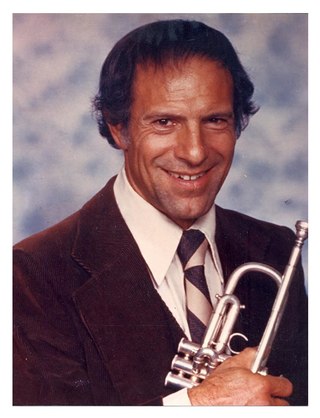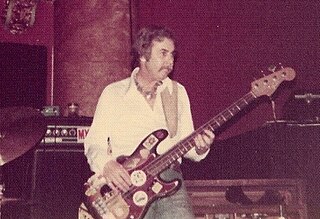
Earl Cyril Palmer was an American drummer. Considered one of the inventors of rock and roll, he is a member of the Rock and Roll Hall of Fame.

Hal Blaine was an American drummer and session musician, thought to be among the most recorded studio drummers in the music industry, claiming over 35,000 sessions and 6,000 singles. His drumming is featured on 150 US top 10 hits, 40 of which went to number one.

The Wrecking Crew is a loose collective of American session musicians based in Los Angeles whose services were employed for a great number of studio recordings in the 1960s and 1970s, including hundreds of top 40 hits. The musicians were not publicly recognized in their era, but were viewed with reverence by industry insiders. They are now considered one of the most successful and prolific session recording units in music history.
Carol Kaye is an American musician. She is one of the most prolific recorded bass guitarists in rock and pop music, playing on an estimated 10,000 recordings in a career spanning over 65 years.

Thomas Joseph Tedesco was an American guitarist and studio musician in Los Angeles and Hollywood. He was part of the loose collective of the area's leading session musicians later popularly known as The Wrecking Crew, who played on thousands of studio recordings in the 1960s and 1970s, including several hundred Top 40 hits.

Austin Dean "Bud" Brisbois was a jazz and studio trumpeter. He played jazz, pop, rock, country, Motown, and classical music.

Lawrence William Knechtel was an American keyboard player and bassist who was a member of the Wrecking Crew, a collection of Los Angeles–based session musicians who worked with such renowned artists as Simon & Garfunkel, Duane Eddy, the Beach Boys, the Mamas & the Papas, the Monkees, the Partridge Family, Billy Joel, the Doors, the Byrds, the Grass Roots, Jerry Garcia, and Elvis Presley. He also was a member of the 1970s band Bread.
William Louis Shelton is an American guitarist and music producer.

Anthony Terran was an American trumpet player and session musician. He was part of the Wrecking Crew, a group of largely uncredited session musicians in Los Angeles, California, who helped famous artists record hit records in the 1960s.
Joseph Thomas Porcaro was an American jazz drummer.
Lawrence Gordon "Larry" Muhoberac, Jr.; was an American musician, record producer, and composer who was also known under pseudonyms "Larry Owens" and "Larry Gordon".
Milton Holland was an American drummer, percussionist, ethnomusicologist, and writer in the Los Angeles music scene. He pioneered the use of African, South American, and Indian percussion styles in jazz, pop and film music, traveling extensively in those regions to collect instruments and learn styles of playing them.

Max Bennett was an American jazz bassist and session musician.
Mike Melvoin was an American jazz pianist, composer, and arranger. He served as chairman and president of The Recording Academy and worked as a prolific studio musician, recording with Frank Sinatra, John Lennon, The Jackson 5, Natalie Cole, and The Beach Boys. Melvoin was nominated for the 2003 Grammy Award for Best Jazz Instrumental Solo for "All or Nothing at All" from his album It's Always You.
Don Randi is an American keyboard player, bandleader, and songwriter who was a member of the Wrecking Crew.
Lyle Joseph Ritz was an American musician, known for his work on ukulele and bass. His early career in jazz as a ukulele player made him a key part of the Hawaii music scene in the 1950s. By the 1960s, he had begun working as a session musician, more often on double bass or electric bass guitar. His prominence in the Los Angeles session scene made him a part of the Wrecking Crew, an informal group of well-used Los Angeles–based musicians. Ritz contributed to many American pop hits from the mid-1960s to the early 1980s. Starting in the mid-1980s, a rediscovery of his earlier ukulele work led to him becoming a fixture in live festivals, and a revival of his interest in playing the ukulele. He was inducted into both the Ukulele Hall of Fame Museum and the Musicians Hall of Fame and Museum in 2007.
Gene Orloff was an American violinist, concertmaster, arranger, contractor and session musician.
Dennis Matthew Budimir was an American jazz and rock guitarist. He was considered to be a member of The Wrecking Crew.
Carol Kaye is an American musician. She is one of the most prolific recorded bass guitarists in rock and pop music, playing on an estimated 10,000 recordings in a career spanning over 65 years.







